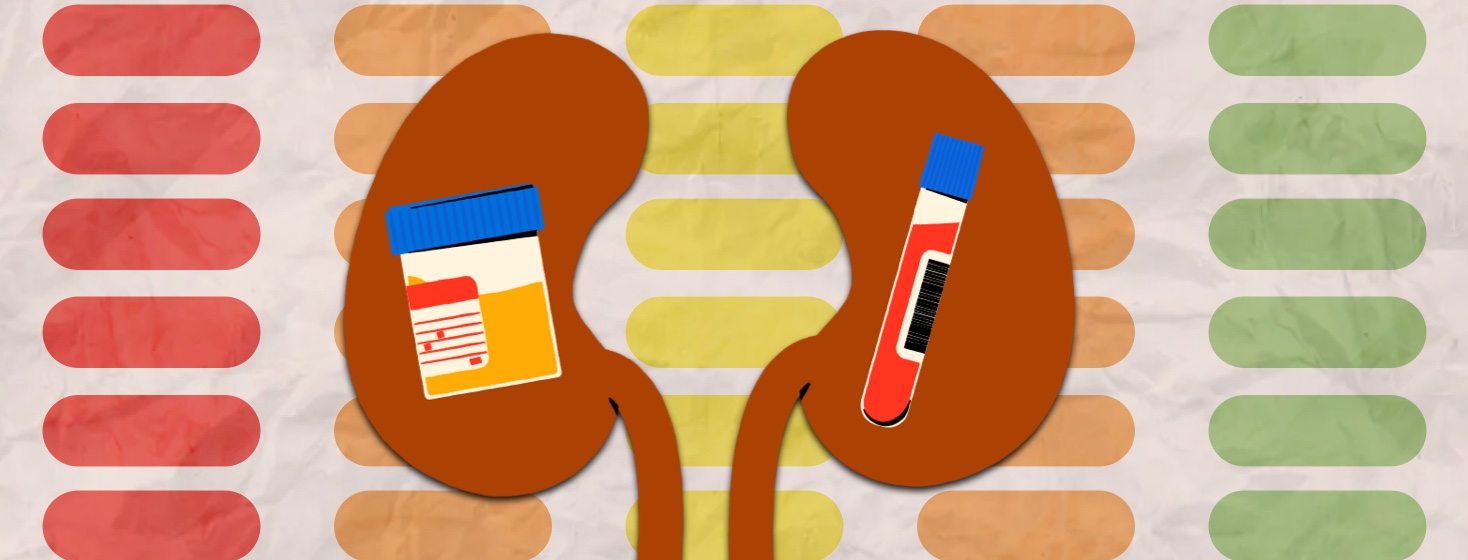Understanding Your Kidney-Related Lab Values
Editor’s Note: This article was written by Nour Sahib and originally appeared on our partner site Type2Diabetes.com.
When you are diagnosed with type 2 diabetes, there are many new terms and lab values that you need to become familiar with. In fact, it can feel like you are almost learning a new language. For people with an additional chronic kidney disease (CKD) diagnosis, there may even be more values and terminology that you must learn.
The following article will outline the most common lab terms relating to the kidneys, but it is not meant to be a complete list. As always, speak to your doctor or nurse if you need clarification on your lab values.
What are the stages of chronic kidney disease?
Your doctor may refer to your kidney function as a staging system. This staging system helps show how well your kidneys work. It is a scale from 1 to 5, based on your glomerular filtration rate (GFR; see below for an explanation of this term).1
- Stage 1: No or minimal kidney impairment (GFR over 90 ml/min)
- Stage 2: Mild kidney disease (GFR 60–89 ml/min)
- Stage 3: Moderate kidney disease. Stage 3 is further divided into "A" and "B," based on GFR (GFR 30–45 ml/min)
- Stage 4: Severe chronic kidney disease (GFR 15–29 ml/min)
- Stage 5: End-stage chronic kidney disease (GFR less than 15 ml/min)
Common kidney-related lab terms
1. Glomerular filtration rate (GFR)
GFR stands for your glomerular filtration rate, measured in milliliters per minute. It is a measure of how well your kidneys are working. A higher GFR is a good thing. A GFR lower than 60 ml/min typically indicates a kidney that is functioning less than it should be.2
You may hear the term eGFR, which stands for estimated GFR. This is just a different way to calculate GFR and is more specific to the individual, but it should give about the same number. eGFR is based on various factors, such as age, sex, and even ethnicity.3
2. Albumin
Albumin is a protein that can enter the urine in less than optimal conditions. Ideally, we do not want albumin in the urine. But when the kidneys are damaged, it leads to the passage of albumin out into the urine. This leads to a condition called albuminuria and indicates kidney damage.4
Your doctor can order a urine test to detect how much albumin is found in your urine.4
3. Creatinine clearance (CrCl)
Creatinine clearance is another measure of kidney function. Creatinine is a waste byproduct found in the blood that is normally removed by the kidneys. High blood creatinine and low creatinine clearance mean there could be some level of kidney impairment.5
Featured Forum
View all responsesKeeping track of your values
Some people find that understanding and keeping track of their kidney values make them feel empowered. However, some patients may feel overwhelmed and disheartened, especially if their kidney function is trending downward. If you are one of those people, knowing the general range you fit in and not tracking your exact numbers may help reduce some of that anxiety surrounding your values.
Where do you fit into that spectrum? Do you track your kidney values, or do you prefer to have a general sense of how well your kidneys are working?

Join the conversation